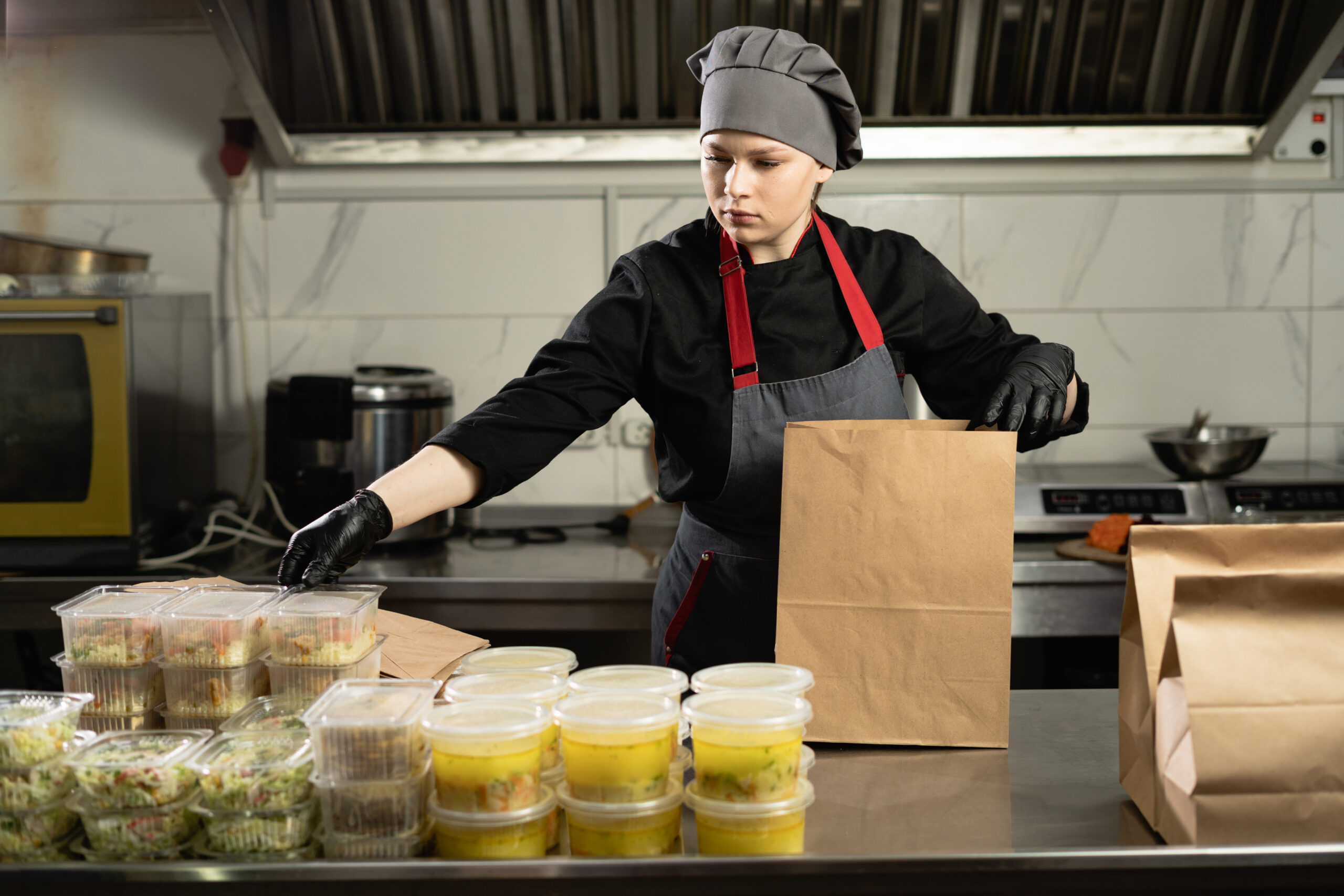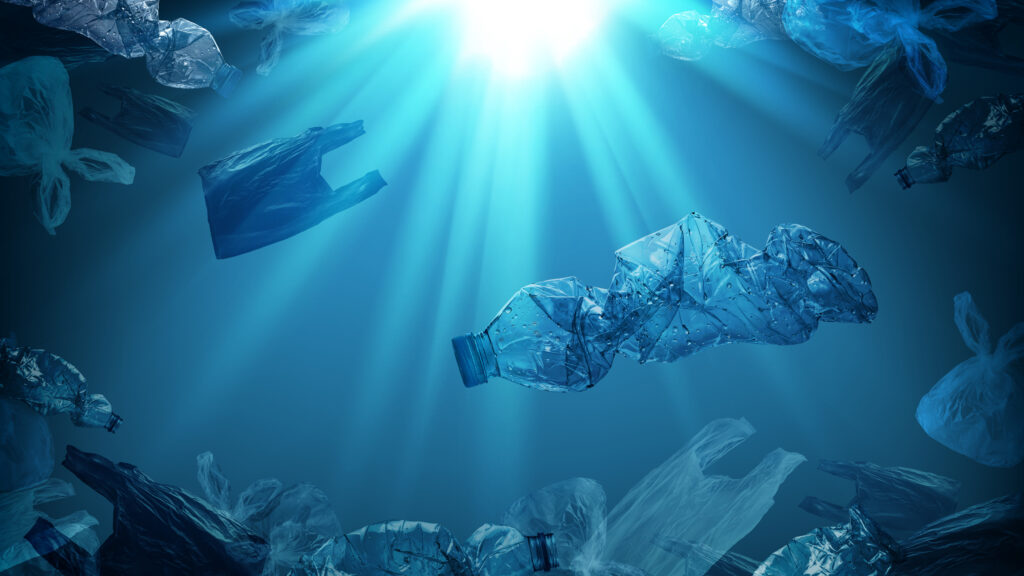“88% of people surveyed across 28 countries believe it is essential, very important or fairly important to have an international treaty to combat plastic pollution.” (Ipsos)
Why should retailers reduce their use of single-use plastic? The answer lies in the significant impact of plastic on the environment and human health. With microplastics being found in our bodies and the environment, retailers must take action to minimize their reliance on disposable plastic. This blog discusses how single-use plastic contributes to pollution and what retailers can do to reduce its use. By reducing single-use plastic, retailers can contribute to a cleaner and healthier planet for future generations.
What is Single-Use Plastic?
Single-use plastic products (SUPs) are items made of plastic that are used once or for a short duration before being disposed of as trash or litter. The impacts of this plastic waste on the natural environment and our health are global and significant. Single-use plastic products are more likely to end up in our oceans than reusable goods. Typical examples include bottles, bags, and food containers.
What are microplastics?
Microplastics are tiny fragments of plastic from different sources, including plastic products and the breaking down of larger plastics.
What are the most common single-use plastics?
The most common uses of single-use plastic include packaging and service ware, such as bottles, wrappers, straws, and bags.
“Consumer plastics are designed to be durable and strong, which benefit society through longevity and safety but causes issues with disposal and recycling” (Plastics Europe).
What impact does single-use plastic have on human health?
Humans are exposed to toxic chemicals and microplastics through inhalation, ingestion, and direct contact with plastic throughout our life cycles. Studies show that people consume around five grams of microplastics per week. These plastic particles enter the human digestive system through various means, such as:
- Consuming seafood, fruits, and vegetables that have absorbed microplastics,
- Drinking from plastic (PET) bottles
- Using products containing microplastic particles.
Microplastic ingestion changes the body’s natural bacteria (gut microbiome) that support digestion and immunity. These changes potentially contribute to health issues such as obesity, diabetes, and liver disease.
“Plastic currently accounts for 85% of all marine litter and is on track to triple by 2040, adding 23-37 million metric tons of waste into the ocean per year. Aside from the fact that plastic takes hundreds of years to decompose, it also poses great health risks to marine animals, where they can accidentally ingest or disrupt ecosystems.” (8Shades)
What impact does single-use plastic have on the natural environment?
Single-use plastic contributes significantly to the pollution of the natural environment in various ways:
- 79% of plastic waste is sent to landfills or the ocean, while only 9% is recycled, and 12% gets incinerated. (Condor Ferries)
- Marine animals often mistake plastic debris for food and ingest it, leading to internal injuries, blockages, and starvation. (Condor Ferries)
- Microplastics have been found in various seafood and even in organisms that are part of the human food chain. (Condor Ferries)
- Plastic dumped in landfills interacts with water, forming hazardous chemicals and degrading water quality. (Conserve Energy Future)
- Microplastics can change soil’s physical structure and limit its capacity to hold water and grow healthy crops. (UNEP)
- Burning plastic in the open air releases poisonous chemicals, causing environmental pollution. (Conserve Energy Future)
The disposable nature of single-use plastic items and the weak waste management systems contribute to pollution on a global scale.
What are retailers doing to reduce single-use plastic?
Walmart Inc.
Walmart uses its considerable purchasing power to encourage suppliers to reduce single-use plastic packaging, promote recycling, and encourage sustainable packaging. In addition, Walmart aims to reduce its use of virgin plastic by 15%.
Virgin plastic: virgin plastic is made from natural gas or crude oil and doesn’t contain recycled materials. Post-consumer recycled plastic is obtained by recycling plastic packaging after consumers have used it.
Target Corp.
Target provides checkout bags with 40% recycled content and encourages guests to recycle plastic bags at in-store kiosks. The company also offers reusable bags and recycling stations for plastic bags, bottles, cans, glass, and ink cartridges in stores.
Costco Inc.
Costco reduces single-use plastic by using and selling compostable and recyclable materials and packaging. Further, the company educates employees, members, and suppliers about the benefits of these efforts.
McDonald’s Restaurant
McDonald’s Canada has been introducing wooden cutlery, wooden stir sticks, and paper straws into its restaurant branches nationwide. Additionally, the restaurant chain intends to reduce the size of its napkins by 20% and produce them from recycled fibers.
Tips Small-Medium Sized Retailers Can Use to Reduce Single-use Plastic
- Replace single-use plastic packaging with eco-friendly alternatives, such as compostable or recyclable materials.
- Implement a refill station for commonly used products, allowing customers to use reusable containers.
- Explore bulk options for certain products, allowing customers to purchase larger quantities with minimal or no packaging.
- Partner with suppliers who prioritize sustainable packaging practices, ensuring that the products align with your commitment to reducing single-use plastic.
- Offer reusable shopping bags to customers and encourage their use.
The impact of single-use plastic on the environment and human health provides a compelling reason for retailers to prioritize its reduction. This blog has shed light on how plastic pollution, fueled by items like plastic bags and packaging, poses risks to wildlife, ecosystems, and our overall well-being. Moreover, the presence of microplastics in our bodies and the environment underscores retailers’ urgency to decrease their dependence on disposable plastic. By taking proactive measures to minimize single-use plastic, retailers can play a pivotal role in creating a cleaner and healthier planet for future generations.
Thank you for reading our article!
TimeWellScheduled is a secure online time and attendance software 100% tailored to meet your scheduling needs! In addition, TimeWellScheduled facilitates employee attendance tracking and payroll processing and enhances staff management capabilities. Plus, our service is free for up to 10 employees!
Click: here to download our (Excel) employee scheduling template: it’s free!






